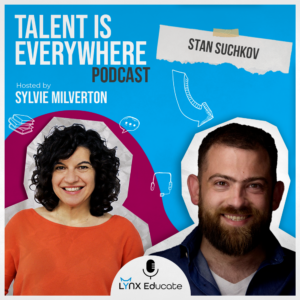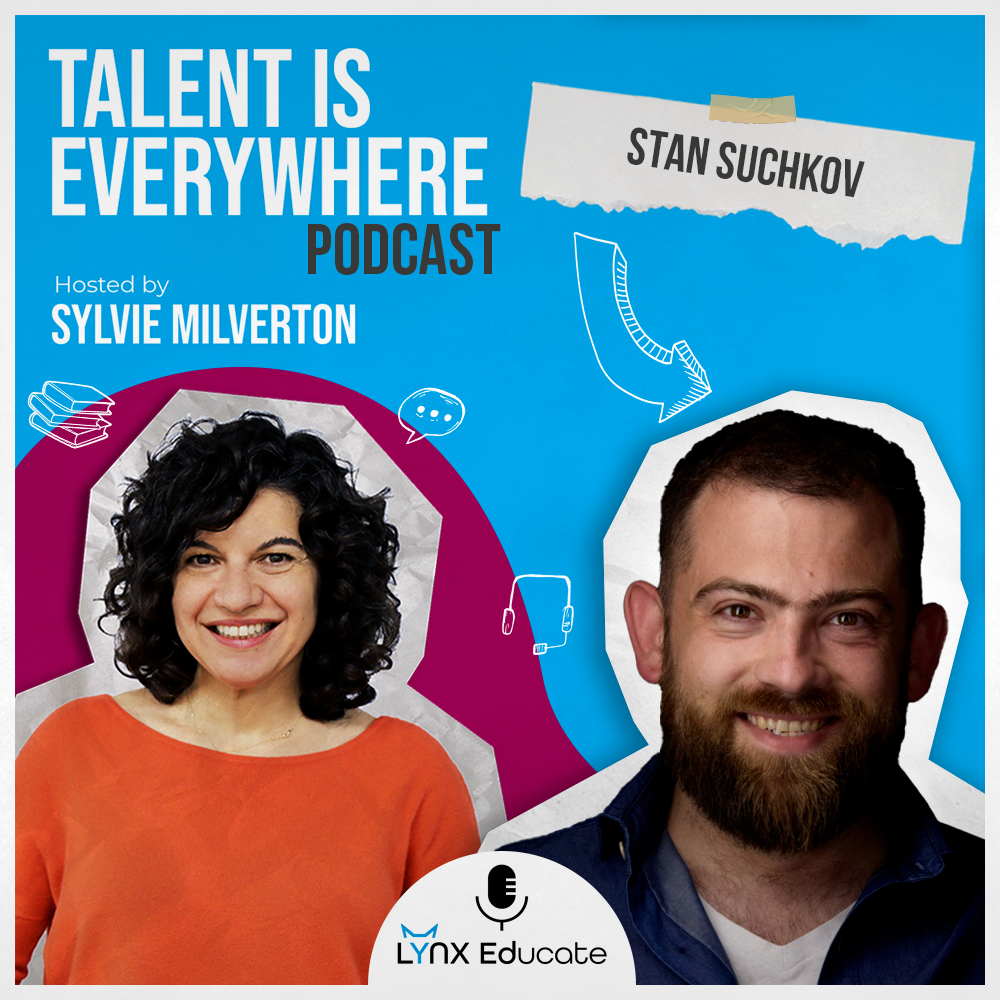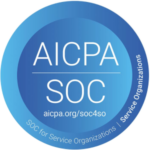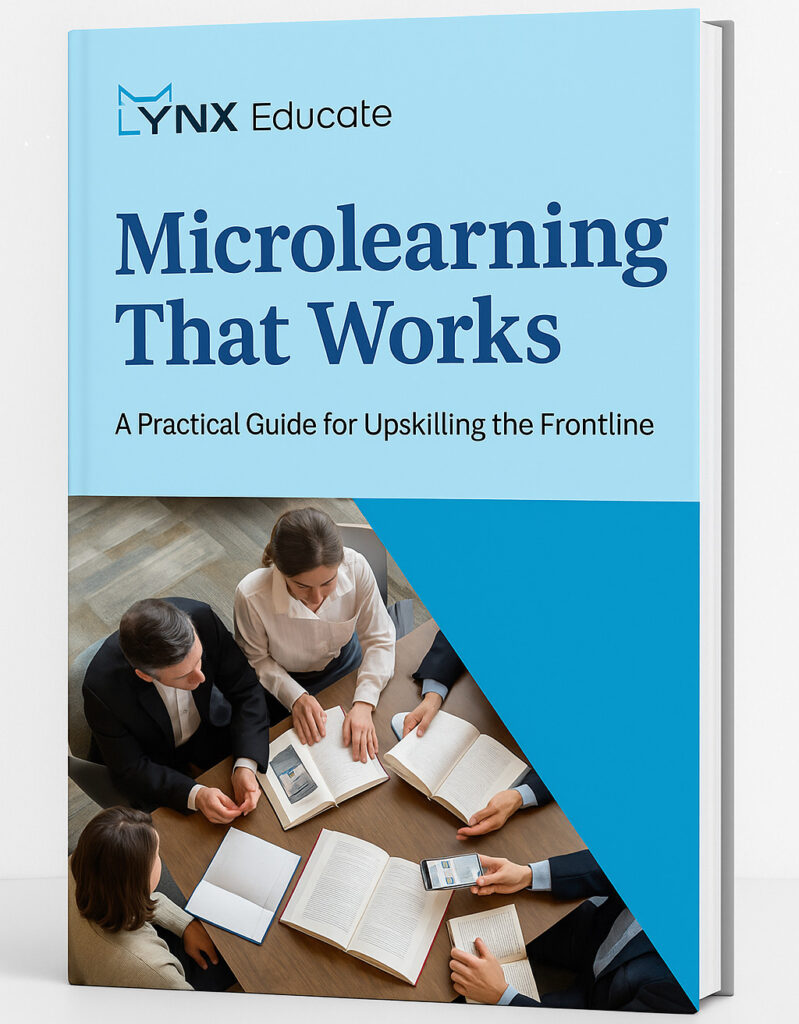#7:Stan Suchkov - Season 2, Episode 7 - Talent is Everywhere!

About the Episode:
Talent is Everywhere is a podcast for people leaders and HR teams who are passionate about education in the workplace to develop all workers. We explore ideas on how to keep talent and how to develop talent in order to create the virtuous circle that builds strong businesses. We’ll interview leaders to hear their experiences of how they invested in people.
Transcript
Stan Suchkov:
And when she started to see what our platform has performed, she just said, wow. Oh my God. and in zero hours after we have sent them the commercial offer, they’ve replied to us that they will buy it.
Sylvie Milverton:
Hi, I’m Sylvie Milverton, CEO of Lynx Educate. This is talent is Everywhere. We are here to talk about how to keep talent and how to develop talent in order to build a strong business. We’ll interview leaders to hear their best experiences of how they invested in people.
So today our guest is Stan Suchkov, who is another startup founder. He has an amazing, HR. Platform based around AI for developing content called Evolve. And before that, he, comes from McKinsey and he actually also worked at a big real estate development company in Russia where he had a lot working with, big teams. So he’s very passionate about people development and the role of a HR.
And so I thought today what we could talk about is we’re both startup founders in this HR space. Maybe we talk a lot about, a bit about. What we see is the pain points in HR teams, what motivated you stand to start your company and what am I doing? And then we can take it to what we see are what learners need and what problems we’re trying to help HR teams, solve.
So maybe we, start with that, like when you are coming up, you know, with your idea for Evolve and how of course, you know, with startups. Some, organic shift in how the market pulls you one way or the other, but what do you see as like the, broad problem you’re trying to solve with your platform?
Stan Suchkov:
Yes, it was, thanks for this question. First of all, thanks for having me in your podcast and it’s nice to meet you. So, I think that the biggest problem we try to solve is. Training the frontline workers and mid-sized managers because, when I talk to other HRs, I do hear that they’re focused on soft skills development and future work.
But what’s going on with like blue collars and with people who don’t understand the need of soft skills development and I was in charge of company where we had more than 2000 people, and mostly these were frontline workers and we needed to onboard them. We understand that they interacted with our clients, and they bring the brand loyalty of our company.
But the hardest thing is to show them and train them how to behave with these clients. And each time there was a problem. So each time they were talking too much or they stayed drunk things and I understood that maybe there is a huge pain on the market and we started to solve it.
Sylvie Milverton:
Right, and that’s interesting because there’s so many, you know there’s like no shortage of learning tools but you know when we’re talking a lot to HR leaders, there’s sort of high level problems like revenue and digital transformation and employee engagement and retention.
But I feel like the problem that you’re getting at, which is what I hear a lot, is it’s more like 300 foot problems, like learner engagement. Like how do you get like those people to say the right things in front of clients, like how do you somehow, like personalize at scale, was that some of what you’re trying to get at with Evolve?
Stan Suchkov:
Well, it’s not only about engagement. The first problem is that I couldn’t understand if they knew what to say. Second part is. The willingness to say, but it comes from understanding what you should say or what you should do when you interact with someone. And when you send lots of documents to these people, they don’t like to read them, they don’t like to be trained. And sometimes. You just can’t, and even, explain to them that they need to learn it.
So in our case, sometimes we should just force them or at least understand that they haven’t gone through it. So they haven’t learned, they haven’t, yet. So we started firstly to fight with this pain, how to make it more engaging, first of all, and how to understand that they have understood it. Yeah.
And, that’s why we created our product. And, our product just not only works with the documents you upload, but it generates different tasks in order to show us that these people have completed these tasks and they know the material we have sent to them.
Sylvie Milverton:
And what I’ve seen of your platform, so I’ll let you explain it more, but maybe let’s see if I understood it well from seeing it as this amazing AI tool where you just can take all types of content.
For example, like if you’re launching a new product or if you had a handbook on how to deal with customers or if you have different sales scripts, you can, upload all these things. It can be documents, can be videos, can be texts, all this. And it creates a nice, a course for people in different modules that have quizzes, that have feedback where you can, large language models where you can write things, it grades you back.
Is that how you would explain it?
Stan Suchkov:
Actually, yes. But there are many ways, on how to train these frontline workers and we started to implement the things in our platform. First of all, you should make it bite-sized learning. So microlearning is an important activity for us, and it’s important to convert all this content into a microlearning approach, when you convert the documents.
Second of all, you should create a clear learning path to like to onboard these people and you should use short assessments. You should use short like theory items, and you should like, make it more engaging, but less heavy.
And that’s what our platform does. So we can upload, like as you said already, presentations, anything about the product, anything about the like company, et cetera, et cetera, et cetera. And it’s subtracts only important information and it inserts it into the course. That’s how it works.
Sylvie Milverton:
And it does it like really fast. I mean, I know maybe. Who knows if in six months we’ll cease to be amazed at how fast, but I’ve seen your thing and you can put a huge quantity of information and it’s like magic, like in one hour or maybe faster. It makes the whole course. It’s really good.
Stan Suchkov:
Yeah. Thanks Sylvie. And I forgot to mention one thing that when you work with people, as I already said, me, size top blue colors, our platform converts it into different languages. So, you know, like, when currently, there are lots of people going from different countries and they go to work. It’s easier for them to go through the content in their native language and that’s all, that’s what our platform does as well.
Sylvie Milverton:
Which is so good. ’cause I mean, I see this with Lynx like a huge pain point that I have and that our clients have is that they’ve got workers in a lot of countries. And I think, it’s one thing if you’re tackling the US market, I think it’s, or Latin America, but I think as soon as you have a company that’s either global or sort of EMIA focused, you’re gonna end up a company that has this, some workers in the UK, some in, Italy and some in Poland, and some in Georgia, some in Russia, or Not so many that you need a whole tool that has Russian, but enough where you like feel bad that they’re excluded. And I’m actually pretty amazed at how few learning platforms out there really properly do, you know, multi-language? I think this is a key pain point of HR leaders
Stan Suchkov:
Sometimes. Yes. you’re definitely right. And even. Especially when we are talking about Europe, when you have the same material and you need it to distribute among different countries, among different sales representatives or among, different call center agents, financial services managers, et cetera, et cetera, and you need them to, go through it.
And, we haven’t thought that this is a huge pain until we, we have acquired several clients and they said that they will pay us extra. You can translate it fast. So we just started to do it. And now, as you said, and. As you have asked us, can you just create it in different languages? We said, yeah, we can.
And it took us like 10, 15 minutes just to convert it. So yeah, it also covers a huge pain, especially with us, we are talking about frontline workers and different managers. Yeah. It also covers a huge pain for them.
Sylvie Milverton:
And how do you feel like you are talking to a bunch of HR leaders, there’s no shortage of learning tools and of course getting product information or getting, let’s call it required learning, compliance learning.
This is old, right? the companies have been doing, in the old days you would print it out and you’d have a recession, say for 10, 15 years it’s been online what? What do you see as the problem? Is it that it takes too long to build the courses? Is it that the libraries are too big and so it’s too hard to find what you need? What do you see as the problem?
Stan Suchkov:
I guess that the biggest problem is the speed. Current speed of our world. Yeah. And we consume all the content we get really fast. And when you, we are talking about libraries, as you have already mentioned. The problem of the library is that it can’t be updated really fast.
So if you create any course and you just launch it, you need to understand that 10 years ago, you need to update it. You need to update it like two or three times. Several years, but currently you should update each course in zero months because everything changes. And I know when we started our startup, I had a really great meeting with the founder of a really huge company and they have been acquired really cheap.
Even though they have raised like with a huge validation, et cetera, they had more than 30,000 courses and I asked him what happened. He said that we had so many courses that we couldn’t update them really fast, and we started to hire more and more people. And we understood that we can’t manage it, we just can’t update these courses and Platforms like our, it updates us by itself.
So just, I haven’t, explained you it before, but you can create the course, then you can upload another document and our platform understands what it should change in your current course, just to keep it updated. it’s a really important feature and, That’s it. Yeah.
Sylvie Milverton:
Yeah. And I think, yeah and another part of that’s interesting about the 30,000 courses, ’cause I get other feedback from HR leaders, I think in the, again, if we go back 15 years, having a quantity or a basic library was what was required. And then it became, content is now, it’s easy.
Just go on YouTube. That’s like many things and it’s TikTok, there’s many things like all internets full of many things. So content is no longer the thing. It’s almost making it relevant, making it to your point, like adaptable to the right people making it, engaging, whatever that means. And I find too that when we talk about Lynx, I try to say we don’t have, actually, we don’t have 30,000 courses.
We have a curated, smaller catalog of just the relevant topics, because I feel like this idea of listing will give you a vast library. The, I get a lot of feedback. I’m just like, we don’t want that. It’s too big and no one knows where to start and how to find. And so, yeah, I don’t know if that’s, what people want anymore.
Stan Suchkov:
Yeah. In their cases they had so many courses because they wanted to cover of like industries. That’s why they had so many courses. But, when we are talking with HRs and you talk a lot more than I do, and when we are talking with them, sometimes HRs or any, like you are building startup as me and we should understand that sometimes we should show our potential clients the product.
In other way, sometimes clients, they don’t know what they want to see and when you show them another approach, how it can be look like in another way, they say, oh my God. So every week I have at least several calls when HR say, oh my God, that’s what happens. Yeah, because, and they haven’t even thought that it can happen.
Sylvie Milverton:
Like so, what’s an example? Like what’s an example of an oh my god.
Stan Suchkov:
Yeah, it was like, it was a really great call with one, beauty company. They’re really big and I know that you definitely use their cosmetics, et cetera, and they had a presentation of 150 pages of their new product lines, and they tried to onboard their sales representatives and when we wanted to have a call, I just said, can you send me any content you want?
And I will show you on the first call what we can do, and on the first call I have shown there 150 pages converted into the course, like which, which will take you only one hour to go through. And when she started to see what it our platform has performed, she just said, wow. Oh my God. So and in zero hours after we have sent them the commercial offer, they’ve replied to us that they will buy it. Yeah.
Sylvie Milverton:
Wow. That is amazing. That is product market fit. And so that’s the feedback from HR. And so what about the learners? Like how are you seeing like what you’re doing to engage ’em and especially, that’s a good example.
I mean, maybe you didn’t launch with them yet, but the kind of people that are gonna be like reviewing this like product information, you know, whether it’s frontline workers, let’s say you’re providing content, you know, it’s not like this like sort of high, necessarily high strategic learning. It’s like you know, learn, get information into your brain and use it in your job. So how are you seeing that they’re responding?
Stan Suchkov:
Actually. We have engagement metrics, but when we are talking about these workers, many of them, they just earn money in order to like save some assets and they don’t understand the need of learning, but in our case, at least they’re happy that they don’t need to go through all these 150 pages.
In our case, they understand that they will go through it like in an hour. They will have zero tasks from five to ten. They just need to choose an optimal answer, and that’s it. And it lies into your brain. like doing, I started to use Duolingo like one hour one year ago, and I started to learn Spanish and I couldn’t understand, how does it work until I’ve understood that I can talk Spanish. So they repeat each time, all the information, each time they repeat each word.
They force you to answer the same question for 10 times, and it works and you like it. You like the competence. Like, you like the points. You like the small engagement things and we have implemented the same in our platform and you just can’t even understand. But one day you just find yourself knowing all this information. That’s it.
Sylvie Milverton:
Right? Yeah. That there’s something in this world of like again, like social media and the way we’re used to consuming content even. Yeah. You see it on YouTube, like with that they’re pushing like YouTube shorts. Like so even like a long video feels, feels long.
That it seems like in corporate learning, like the degree to which, yeah, I know. It’s not that it’s fun engaging, these are sort of light words, but that, that it is enjoyable for the person to keep clicking through that it sorts of gets that same dopamine hit that you’d get from like scrolling through YouTube or, and I think that’s what Duolingo figured that out. Like you’re it’s a game. Like it’s fun. You wanna keep going the next one and the next one.
Stan Suchkov:
You are definitely, you’re definitely right. And the problem is that you just. In 2024, there was statistics that you can’t spend more than eight seconds focusing on the same thing right now in average. And it’s all happened about because of like shorts, because of Instagram reels, et cetera.
And you see that in LinkedIn? went to the same direction and Facebook went to the same direction. So how can you train people if they cannot focus? I, okay. We can talk about people who understand the importance of soft skills and understand that I will not see any results for zero months. I will not see any results for a year, but I definitely sure that it’ll help me later.
But when we are talking about. Different like people, who have daily work routine. They don’t see the result today and they don’t want to proceed. That’s the biggest problem. And when I talk to each others and they describing all the necessary soft skills you should have, all this future of work stuff, I just understand it.
You can describe it to me because I understand the importance, but how can you describe it to frontline worker who wants to earn like $50 per day or like, I don’t know, that $200 per day. Yeah. The minimum wage. How can you describe to him that he should, he, should spend a year to improve his soft skills. He just think, thinks about how can he bring like food home or how can he buy the cheap car and. You, you need to train him as well.
Sylvie Milverton:
And I think that there’s something in that, like in terms of, you know, there’s certain people, right? You’re. You’re. What’s the main thing people want out of a job is a salary and they want a good salary and they wanna be able to continue to grow.
And so I think there’s a sense of while you’re working, you’re busy, what are your priorities? Bringing home enough money, earning more, getting the skills to advance, but you’re also busy, right? And especially in some of these hourly jobs, you don’t have the luxury of just learning and plus your company is sort of, there’s all these required learning that you need for compliance and to do it.
And so, yeah, it’s like how can companies, and this is what Lynx sort of tries to solve, it’s how can companies offer, quote unquote good things to frontline workers. How do you help, you know, the mass of the population grow and have access to better job opportunities while still, you know, having time to do their current job and what are ways that companies in a cost effective way can invest in that type of content.
And I think, you know, your platform is one of these things that lot, like for a much lower cost, you can, you know, teach soft skills and it would not take one whole year, but you could learn some of these things that will help you.
Stan Suchkov:
Yeah. You, can just, teach like the basic stuff, and, you don’t need to be an expert in initiation process or in critical thinking in leadership, et cetera, et cetera, et cetera. You should just know your job responsibilities and attach like small amount of soft skills in order to perform better than others do, in order to get like a bigger salary, in order to be motivated, et cetera, et cetera. That’s how, what our platform does.
Sylvie Milverton:
And I think also, you know, how can companies start to think like okay, you’re doing this job now, but what are the jobs to do tomorrow? And what, you know is the, what are the, you know, unknown skills of this person who’s in maybe a frontline job or an entry level job.
And then they can grow, you know, like you know, we all know this, that, opportunity, a talent is everywhere, but opportunity is, you know, not, and so how do you say like listen, this person, we don’t know who’s the amazing mathematician or who knows how to, you know manage Excel or who’s gonna be a great salesperson. Like they never, you know, never had a, chance. But if it’s. Too expensive to give them even opportunity. You never know.
Stan Suchkov:
Yeah. And even you don’t know whether they want to be a great salesperson, whether, these people, maybe they don’t need anything. they’re happy and sometimes they’re happier than we are with you.
So you just you have your own startup, you need to increase your revenue, you need to acquire more clients, you need to run, run, run, run. And you just can’t stop. So and these people, they enjoying their lives. They have like meetings with their huge families. They have children, they can spend more time with them, and they don’t need like being, they don’t need their social skills to be developed. So to have all of this
Sylvie Milverton:
Right, certainly not. Yeah. Not in the same way. No, I agree. And that, and I think that’s another, you know, thing that I often think about learning platforms is that. In that, how it was up until now. I think AI and large language models change a lot of things, but it by definition a little bit had to be like one size fits all.
Like you put a big platform that has, you know, one kind of content or two kinds of content, like maybe you’ve got all your product information and then you have some nice like soft skills platform and you pay 20,000 a year for that. And then. Everybody has that, but now we can really get like very focused.
So for the people that wanna learn more, for the people that maybe, you know, just you don’t wanna spend more time with their families and, want to learn things that are fun just because maybe they have a bit of time on their commute and they wanna think about something else. there’s an opportunity, yeah, to just be much more personalized and solve, solve more things.
Stan Suchkov:
Yeah. And I guess AI will change everything because. You don’t need to have courses that feed everyone. So making, learning not only relevant and practical, but more personalized, it’ll definitely bring lots of benefits for companies and AI will definitely help with this.
So when we are talking about some employees who resist learning, when they don’t see how it benefits them, you just should make it more relevant, shorter, more practical. And this learning should feed their job rep, like responsibilities. So they should understand that they will have a small career growth after they will finish this courses and after they will show small amount of results. And that’s it.
Sylvie Milverton:
Yeah, no, I totally, I definitely agree with that. And I think the other part of maybe what you say is like. It’s okay if not everybody, like you’re never gonna get everybody motivated by learning. And actually really good learning platforms have pretty low uptake, which I actually. I think is fine because at any one moment you’re kind of getting that core group of people who are motivated.
And even just think of yourself, think of me like, there’ve been moments in my life where I’m like taking these, like doing master’s degree or doing courses, or I’m doing sales training or I’m doing coaching and then other moments, you know, just even in my short startup journey where I’m like doing no learning at all.
And then other times I’ve signed up for this, I’ve signed up for that. and so I think it’s just you know the arc of, you know, our own professional experience of when we’re motivated by doing certain things. You know, and when we’re and when we’re not.
Stan Suchkov:
Yeah. And maybe we are motivated because we like to run or we get used to run every day and we, and, in my, in my life, I just can’t understand how to have a rest for one week. I just don’t know what to do if I don’t have work.
Maybe same with you. Not, not every day. Of course we have weekends, et cetera, but we get used to develop ourselves. Because everyone around us say that we need to develop soft skills. We need to grow, we need to get MBA, we need to get executive MBA. And we understand that if we’ll get it, we’ll have like a small climb again. And it’s great. It motivates us, but it’s only about us. Yeah.
Sylvie Milverton:
Right, that we’re like, yeah, these sort of unique people. I guess I would argue though that a lot of people, a lot that you find people like us across all areas and that like, what is so nice is to be able to like, you know, whoever that is, that they get the chance to.
To continue to grow. yeah. So about Evolve. So tell me a bit more just to finish like, what is your, you know, what is your vision of, you know where you’re going with your product, what kind of companies do you work with and yeah. Where can people find you if they wanna find out more?
Stan Suchkov:
Well, they definitely can find us in the internet. So it’s evolved platform dot AI. But, we, grow really fast actually. We grow. We have, I’ve collected metrics right now, like zero hours before our like podcast. And currently we grow, not even 30, but 40% per month. And, I think that we have a chance to disrupt the approach about learning. So when you don’t need to like buy a course.
You can just generate any course you want with a good quality. And, currently we have launched our knowledge base. So based on everything you upload, you have a knowledge base and every employee can use it. And we understand that when we’ll collect enough information, your company can generate any personal course for any employee.
And it’ll be generated based on your knowledge base, everything that you have collected on our platform. Our platform has learned how to build the courses. Our platform has your knowledge base. Now it can assess any new employee. It can understand what does this employee need in his, daily activities and it’ll build him his personal course for one week or for two weeks, and this, employee will be onboarded more efficiently. That’s, the direction we are facing too.
Sylvie Milverton:
Amazing. No, I see why. I can see exactly why you get this, oh my gosh. Response from, from HR and listen, even from us, I hope, you and I are talking about a potential partnership. yeah. And even for us, I can see how having access to this kind of platform is just gonna change.
Yeah. Change the way Lynx can deliver courses and yeah, we see the wave of AI. yeah. And I congratulate you on your growth, and I will say it has been just such a great pleasure talking to you and getting to know you through the process of this podcast. So thank you, Stan.
Stan Suchkov:
Thank you, Sylvie. It’s a pleasure to hear such words from your side.
Sylvie Milverton:
Very good.
Stan Suchkov:
I’m just smiling. That’s why I love my work. Thank you.
Sylvie Milverton:
Thanks for listening to this episode of Talent Is Everywhere. Make sure to subscribe if you like what you heard, and give us a follow on LinkedIn to continue the conversation on all things career mobility and talent development. Is there a topic you’d love for us to cover in a future episode or a guest you’d recommend? Drop us an email at hello@linkseducate.com, and if you’re looking for support on your talent development strategy, head over to links educate.com to learn more about our career mobility solution. That’s LYNX educate.com.








